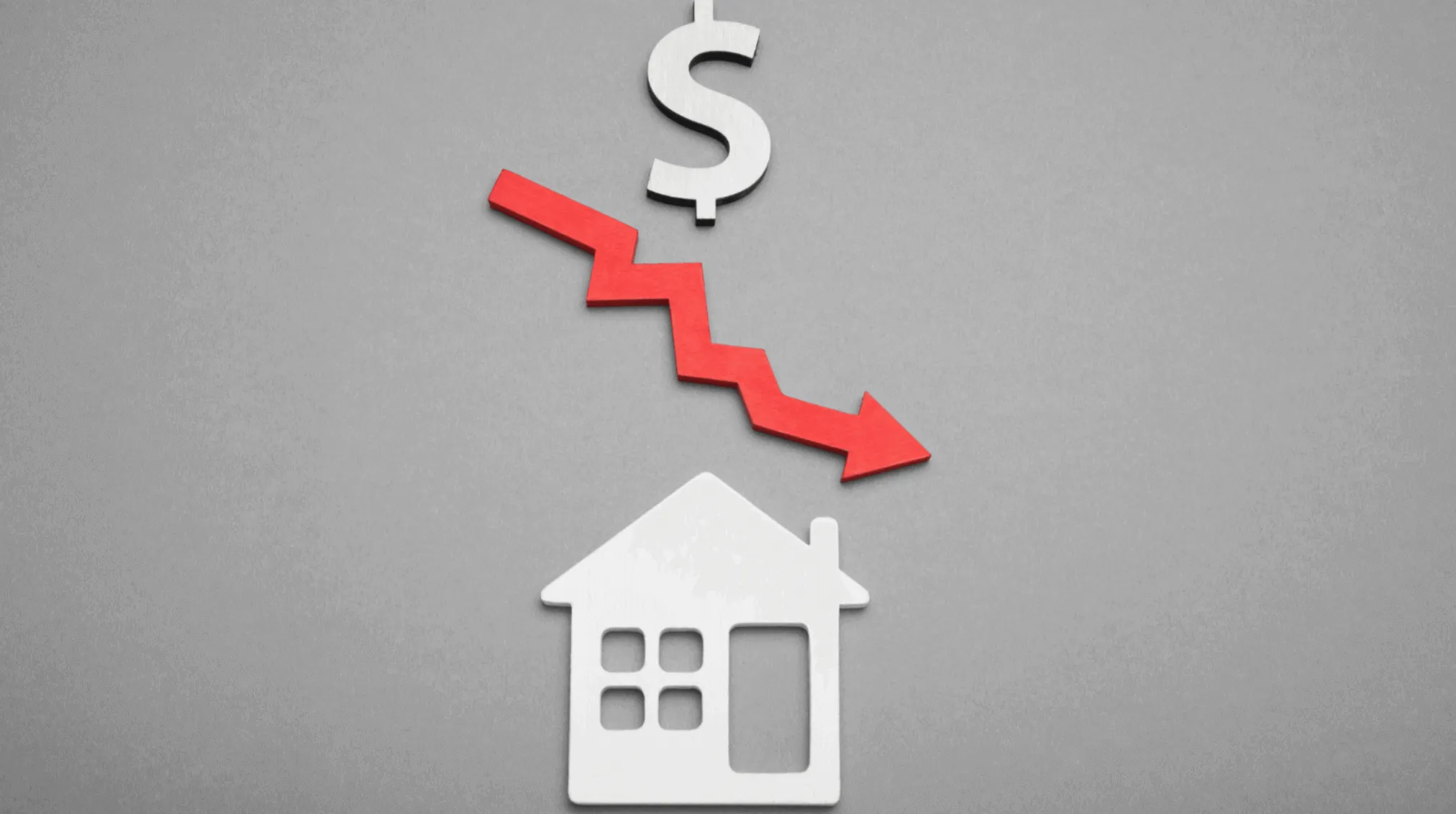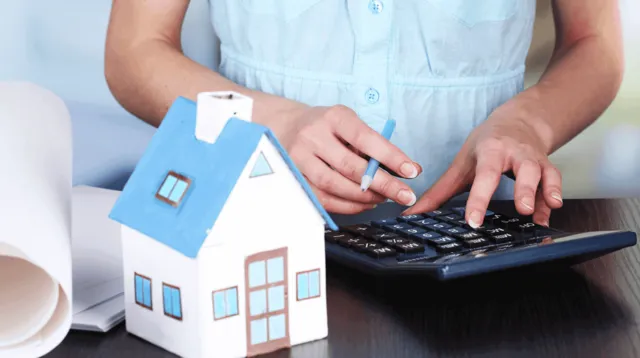Real Estate Pricing: Complete Guide to Setting Prices
Real estate pricing involves setting the optimal price for your property and maximizing its value. We teach you different methods of real estate pricing.
"Real estate pricing" refers to the process of establishing the appropriate price for a real estate property, whether residential, commercial, or industrial. This process is crucial, as a well-established price can determine the success or failure of a real estate transaction. In simple terms, real estate pricing consists of finding the perfect balance between the buyer's perceived value and the seller's economic objective.
This process is not simply a matter of estimating an arbitrary number. It involves a detailed analysis that requires a deep understanding of the market, demand, supply, and the specific characteristics of the property. Proper pricing ensures that the property not only attracts interest but also sells within a reasonable timeframe and at a fair price.
Real estate pricing also varies depending on the type of property. For example, the process of setting prices for commercial properties differs from that of residential properties, as each type of property has different metrics and factors that affect its value. In the case of commercial real estate, the price could largely depend on the income the property can generate, while for residential properties, factors such as location, size, and condition are more predominant.
Moreover, real estate pricing is a key strategy not only for selling but also for renting properties. A poorly adjusted rental price can result in long vacancy periods or the need to reduce the price after several months on the market.
Importance of Pricing in the Real Estate Market
Real estate pricing is vital for maintaining efficiency and balance in the real estate market. A market where properties are poorly valued can lead to real estate bubbles, which in turn can result in economic crises. On the other hand, undervalued prices can lead to significant losses for owners and destabilize the market.
One of the key reasons why real estate pricing is so important is that pricing decisions directly affect the behavior of buyers and sellers. A price that is too high can discourage potential buyers, causing the property to remain on the market longer than necessary. On the other hand, a price that is too low could cause the property to sell quickly, but at the expense of the owner's capital.
Furthermore, real estate pricing has implications for the perception of value in the market. A property that remains on the market for an extended period due to a high price may be perceived as problematic, which can lead to a negative perception, even if the property has no inherent issues.
It's also important to consider that real estate pricing is not static. Real estate markets are dynamic and subject to changes due to multiple factors, such as interest rates, the global economy, inflation, and changes in government policies. Therefore, it's essential that property prices are continually adjusted to reflect these changing conditions.
Lastly, real estate pricing also has a direct impact on housing affordability. Fair and balanced pricing ensures that properties are accessible to a wide range of buyers, promoting equity in the market and avoiding gentrification, which can displace entire communities due to excessively high prices.
In conclusion, real estate pricing is an essential component of the process of buying, selling, and renting properties. Correct valuation not only benefits sellers and buyers but also contributes to the overall stability and health of the real estate market.

Key Factors Affecting Real Estate Pricing
Property Location
Location is one of the most determining factors in real estate pricing. It not only directly affects the value of a property but also influences demand and future appreciation potential. To understand how location affects pricing, it's essential to consider several aspects:
- Proximity to Services and Amenities
- Neighborhood Quality
- Accessibility and Transportation
- Zoning and Urban Development
- Environmental and Landscape Factors
- Market Trends and Cycles
Size and Layout of the Property
The size of a property and how its internal area is distributed are fundamental factors in real estate pricing. These elements not only determine how many people can comfortably live in the property but also influence the functionality and attractiveness of the home.
- Total Surface Area
- Number of Bedrooms and Bathrooms
- Spatial Distribution
- Quality of Materials and Finishes
- Additional Spaces
- Flexibility and Expansion Potential
Property Condition and Age
The condition and age of the property are crucial factors that directly affect real estate pricing. The relationship between a property's age and its value can be complex, as it depends on how the property has been maintained over time and what renovations have been carried out.
- Age of the Property
- Maintenance and Repairs
- Renovations and Updates
- Presence of Asbestos or Other Hazardous Materials
- Energy Efficiency
- Aesthetic Conditions
You can make the most of your property through virtual home staging and reflect its real value in property listings.
Nearby Amenities and Services
The proximity and accessibility to a variety of amenities and services can have a significant impact on real estate pricing. These elements not only improve the quality of life for residents but can also increase the attractiveness and value of a property in the market.
- Public Transportation
- Educational Centers
- Commercial Areas
- Health Services
- Recreation Areas and Green Spaces
- Security and Public Services
- Cultural and Social Life
- Development Zones
Local Market Trends
Local real estate market trends play a crucial role in determining real estate pricing. These trends can be influenced by a variety of factors, from the local economy to changes in government policies, and have a direct impact on the demand and supply of properties in a specific region.
- Real Estate Market Cycles
- Demographics and Population Growth
- Local Economy and Employment
- Interest Rates and Financing
- Government Policies
- Foreign Investment and Speculation
- Changes in Consumer Preferences
- Supply and Demand

Methods for Determining Real Estate Pricing
Market Comparison Method (MCM)
The Market Comparison Method (MCM) is one of the most commonly used approaches to determine real estate pricing. This method is based on comparing the property in question with other similar properties that have been recently sold in the same geographical area.
Cost Method
The Cost Method is primarily used to value properties that are difficult to compare directly with others, such as unique or new constructions. This method is based on the premise that the value of a property should be equal to the cost of building a similar property from scratch, adjusted for the depreciation of any existing components of the property.
Income or Capitalization Method
The Income Method, also known as the Capitalization Method, is an approach primarily used in the valuation of commercial properties and income-generating real estate investments. This method is based on the premise that the value of a property is directly related to its ability to generate future income.
Automated Valuation Methods (AVM)
Automated Valuation Methods (AVM) are becoming increasingly popular in the real estate sector due to the growing availability of large volumes of data and advances in data analysis technologies. AVMs use algorithms and mathematical models to estimate the value of a property based on a variety of publicly available data and other relevant data.
Risk Factors and Challenges in Real Estate Pricing
Real estate pricing is subject to several risk factors that can impact its accuracy and viability. One of the main challenges is market volatility, which can be influenced by economic, political, or social changes. Fluctuations in interest rates, inflation, and credit conditions can alter property demand and, consequently, prices.

Real Estate Pricing Strategies in Competitive Markets
In highly competitive real estate markets, strategically adjusting prices is crucial to maximize the value of a property and ensure its sale. One of the most common strategies is constant market evaluation, where prices are adjusted based on current supply and demand. This involves closely monitoring market trends and being willing to reduce or increase prices according to market conditions.
The Impact of Technology on Real Estate Pricing
Technology has revolutionized the real estate pricing process, facilitating faster and more accurate access to information. Automated Valuation Models (AVMs) have gained popularity, allowing users to obtain real-time value estimates based on large volumes of data and algorithmic analysis. These systems can evaluate hundreds of variables in seconds, providing quick and relatively accurate valuations.
Big data has improved the ability to analyze market trends, demographics, and buying patterns. This allows for a more nuanced and accurate assessment of property values. Additionally, the use of artificial intelligence and machine learning has improved the ability to predict market changes, identify undervalued properties, and optimize prices.
Digital platforms have also transformed the way properties are listed and searched. Websites and mobile applications allow buyers to easily compare prices and features of multiple properties, forcing sellers to adjust their prices to stay competitive.
Finally, virtual and augmented reality has changed the way properties are presented and perceived. Virtual tours allow buyers to experience the property from anywhere in the world, which can influence their willingness to pay a certain price.
In summary, technology has provided powerful tools to improve the accuracy and efficiency of real estate pricing, benefiting both sellers and buyers in the process.

Innovations in Real Estate Pricing:
Virtual Home Staging and Its Impact on Valuation
Virtual home staging has emerged as an innovative tool in the real estate market, transforming the way properties are presented and perceived. This technology allows sellers to create digitally enhanced versions of their properties, showing how they would look furnished and decorated without the need to make physical changes to the actual space. This not only saves costs compared to traditional staging but also accelerates the sales process and can significantly influence the property's valuation.
By applying virtual home staging, sellers can highlight the best features of a property and minimize any aspects that might be seen as disadvantages. For example, a small space can appear more spacious and welcoming with the help of a well-executed digital design. This enhanced presentation can lead to a more positive perception of the property, which, in turn, can justify a higher selling price.
Furthermore, virtual home staging allows potential buyers to visualize how they could live in the space, which increases their emotional connection to the property. This emotional connection is a key factor in purchase decision-making and can motivate buyers to make more competitive offers. In saturated markets, where many properties compete for the attention of a limited number of buyers, virtual home staging can be the difference between a quick sale and a property that remains on the market for months.
Another significant benefit of virtual home staging is its ability to attract international buyers or those who cannot visit the property in person. By offering an attractive and realistic visual experience, virtual home staging expands the reach of real estate marketing, which can increase interest and demand for the property.
In terms of pricing, the impact of virtual home staging is evident. Properties that are presented better, even digitally, tend to attract more visits and offers, allowing sellers to position their price more aggressively. Additionally, by reducing the time a property remains on the market, virtual staging helps avoid price reductions that are often forced by the need to sell quickly.
You can try our Virtual home staging tool for free and set the perfect pricing for your property.

Related Posts
Top 7 AI Room Decoration Tools for 2025
Discover the best AI room decoration software for 2025. Our review compares top tools to help you de...
9 Curb Appeal Ideas on a Budget That Actually Work (2025)
Transform your home's exterior with our top curb appeal ideas on a budget. Get easy, high-impact tip...
10 Essential Curb Appeal Improvements for 2025
Discover 10 essential curb appeal improvements to boost property value. This guide for real estate p...